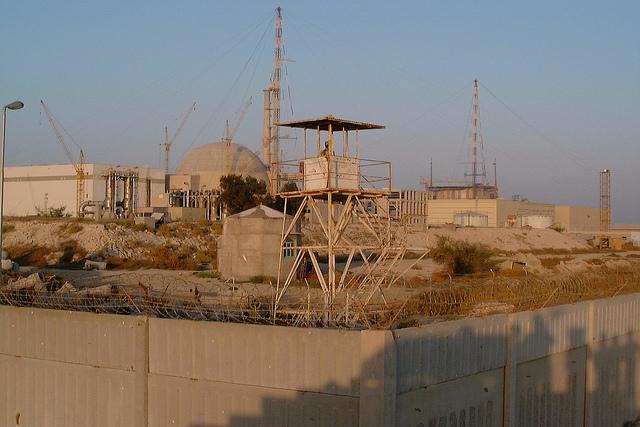President Trump, Iran and the Joint Comprehensive Plan of Action
Posted By Richard Menhinick on October 10, 2017 @ 11:00

During his 19 September address [1] at the UN, President Trump criticised the Joint Comprehensive Plan of Action (JCPOA) between Iran and the E3/EU+3 (China, France, Germany, the UK, Russia, the US and the EU).
US Secretary of State Rex Tillerson has acknowledged [2] that Iran is in technical compliance with the JCPOA, but has added that Iran’s destabilising behaviour in the broader Middle East casts doubt on its overall commitment to the deal and that it’s only one among a range of issues involving Iran that the US is dealing with.
This approach from the Trump administration comes as no surprise, as it’s playing to Trump’s domestic base. Political and military elites in the US see Iran as an enemy—one that the US has been virtually at war with for 38 years. There’s little US domestic interest in moving away from that position, or from the constancy that it gives to Washington’s relations with its Gulf allies. This mindset places the US at odds with European powers, Russia and China.
The Trump administration must become more sophisticated. The JCPOA is about preventing a spread of weapons of mass destruction (WMDs); it isn’t about an aligned foreign policy. It’s designed to ensure the exclusively peaceful nature of Iran’s nuclear program, and permits Iran to use nuclear energy for peaceful purposes under the Nuclear Non-Proliferation Treaty (NPT).
That the JCPOA was the Obama administration’s paramount foreign policy achievement also makes this a domestic issue for the Trump administration. At the signing of the deal and again during the Republican Party nomination process, Republican anger against the agreement was extensive.
However, lead among the myriad threats to the strategic dynamics in the Middle East is a spread of WMDs, and the JCPOA is a significant bulwark against that. Despite domestic support for Trump’s position, his stance diminishes US credibility globally, as it is duplicitous. Pakistan and India aren’t parties to the NPT—and then we have Israel, which isn’t a party to any of the major treaties governing WMDs.
Another uncomfortable fact for the US is that the Middle East faces persistent terrorism from both Shia and Sunni forces. The region remains the global epicentre of terrorism, complicated by quasi-states. The failure of the Arab Spring, the resulting huge numbers of refugees and internally displaced persons, and the lack of economic prospects for an ever-increasing youth population further improve the conditions for terrorist recruitment.
This is worsened by the strategic confrontation between Iran and Saudi Arabia. Both use the sectarian divide between Shia and Sunni to further their power and influence. Their confrontation provides the political and societal elements to the sectarian tensions that have erupted in Syria, Iraq, Lebanon, Yemen and elsewhere.
The JCPOA can assist in bringing Iran back into line with the international community. Importantly, Europe has seen that the deal works. Europe has zero appetite for a new cascade of conflicts in a region on its doorstep. Equally, Australia should be strong in stating its support for the JCPOA and its disagreement with the Trump administration.
The election of Iranian president Hassan Rouhani in 2013 and again in 2017 offers a glimmer of hope. While hardliners retain powerful tools to deny him any major achievements, he’s keen to see the nuclear deal survive. He needs it to stimulate the sluggish Iranian economy and deradicalise the country. However, his government needs to temper Iranian public expectations. His reform program will be damaged severely if the Trump administration withdraws from the JCPOA.
Despite any reforms Iran may make, Arab states’ distrust of Tehran will remain because the politics in the Middle East is dominated by security issues. If Saudi Arabia feels that the JCPOA helps Iran to again become the dominant state in the region, issues will get increasingly complicated.
Indeed, since Salman bin Abdulaziz al-Saud ascended to the Saudi Arabian throne in 2015, he has made profound changes in the leadership of the kingdom, driving an effort to re-establish his country’s clout. The king has moved forcefully to challenge the expanding regional influence of Iran, most publicly by embarking on a war against the Houthis in Yemen, while Iran is playing a countering role in Syria.
We need to consider the impacts if the JCPOA were to collapse, and none would be good. Iran would most probably recommence its presumed nuclear program, and Saudi Arabia’s nuclear ambitions would be fuelled. Hardliners in both countries would gain in authority. Iran’s army would continue to modernise, including with potentially nuclear-capable ballistic missiles. Escalated tensions and conflict are all but inevitable in this scenario. The collapse of the agreement might drive the US to consider a military option, and Israel might be the first to react and pre-emptively attack, which could lead to a generalised regional conflict.
Australia must do all it can to moderate Trump’s aversion to Iran and the JCPOA. His speech at the UN was dangerous. The Trump administration can’t seem to move past the last 38 years. Hardliners in the Middle East will benefit from this, to the detriment of the peoples of the Middle East and other countries, including Australia.
Article printed from The Strategist: https://aspistrategist.ru
URL to article: /president-trump-iran-and-the-joint-comprehensive-plan-of-action/
URLs in this post:
[1] address: https://www.whitehouse.gov/the-press-office/2017/09/19/remarks-president-trump-72nd-session-united-nations-general-assembly
[2] has acknowledged: https://www.cbsnews.com/news/tillerson-iran-in-technical-compliance-with-nuclear-deal-but-problems-remain/
Click here to print.